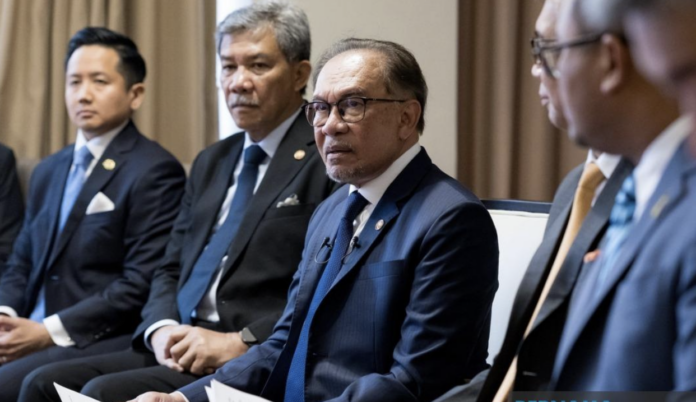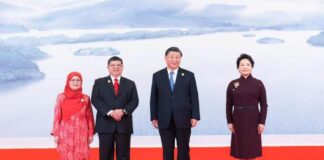KUALA LUMPUR, Sept 18 – Can it be any wonder why Prime Minister Datuk Seri Anwar Ibrahim has exercised the prerogative to engage Russia and BRICS Plus too?
This question, posed by an international affairs analyst Dr Phar Kim Beng, captures the complexity of Malaysia’s multi-directional foreign policy.
“Thailand has applied to be a member of the BRICS Plus bloc too, and one does not see any barbed remarks against Thailand in the open press,” he wrote in his article titled “A World of Negative Spirals Demand A Multi-Directional Foreign Policy in Malaysia.”
Phar noted that unless and until these questions can be firmly answered, “Malaysia has the every right to remain true to its multi-directional foreign policy to face the harsh reality of the world; before it passes all points of inflection of no return.”
“Besides, when Malaysians are not protesting against these initiatives it beckons common sense why others should speak negatively against its leadership, once again,” he said.
Phar said that when the international society is unable to adapt to the contingencies in any organised and multilateral manner, it is entirely inappropriate to expect the likes of Malaysia to hold on indefinitely to any “universal standards of international relations,” when the proverbial bottom is literally not there.
“Be it Ukraine or Gaza, Malaysian leaders cannot be expected to see the two issues as one and the same, especially when armed conflicts in Ukraine and Gaza were triggered by different causes.
“This is the problem with those who accuse Malaysia of subscribing to “double standards” when Putrajaya is no longer holding firmly to opposing Russia’s prior aggressions on Ukraine, that started on Feb 24, 2022.”
Phar highlighted that Malaysia has to rely on “traditional,” and “trade diplomacy,” according to Foreign Minister Datuk Seri Mohamad Hassan.
“This has been the tried and tested template of the country since 1957. Prime Minister Anwar Ibrahim, who has the first and final say on Malaysia’s foreign policy too, cannot be adversely judged by his visit to Russia in early September 2024,” he said.
According to him, there are three compelling reasons on why Anwar has to engage Russia.
One of the reasons is that Ukraine is not necessarily a war which, for the lack of a better phrase, must ‘prick the conscience’ of the world indefinitely, tragic as the plight of the Ukrainians are.
“Due to the impact of this war on the prices of fuel, food, (animal) feed and fertiliser, many do want the war to end,” wrote Phar.
Yet 2024, he said, “marks the Chairmanship of Russia on BRICS, otherwise known as BRIC Plus due to its expanded membership.
“Moscow cannot be forced to yield to the G7, the European Union (EU) and the North Atlantic Treaty Organisation (NATO) without destroying its own credibility.
“As things are, the Gross Domestic Product (GDP) of China is already 64 times bigger than Russia,” he said.
The other reason is while Malaysia can continue to oppose this war in principle, based on international law, national interest dictates that “Malaysia cannot support a lost cause perpetually.”
















